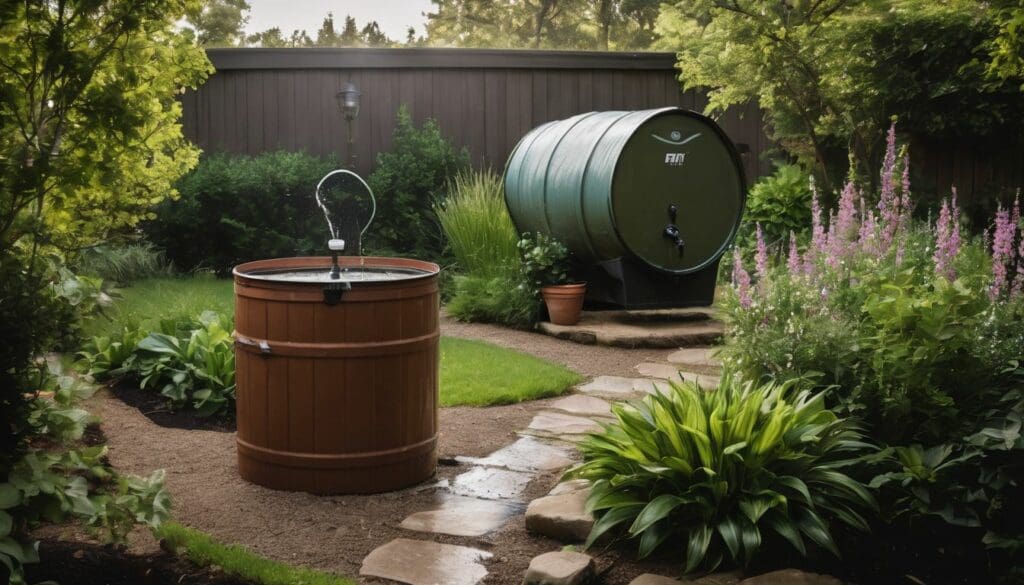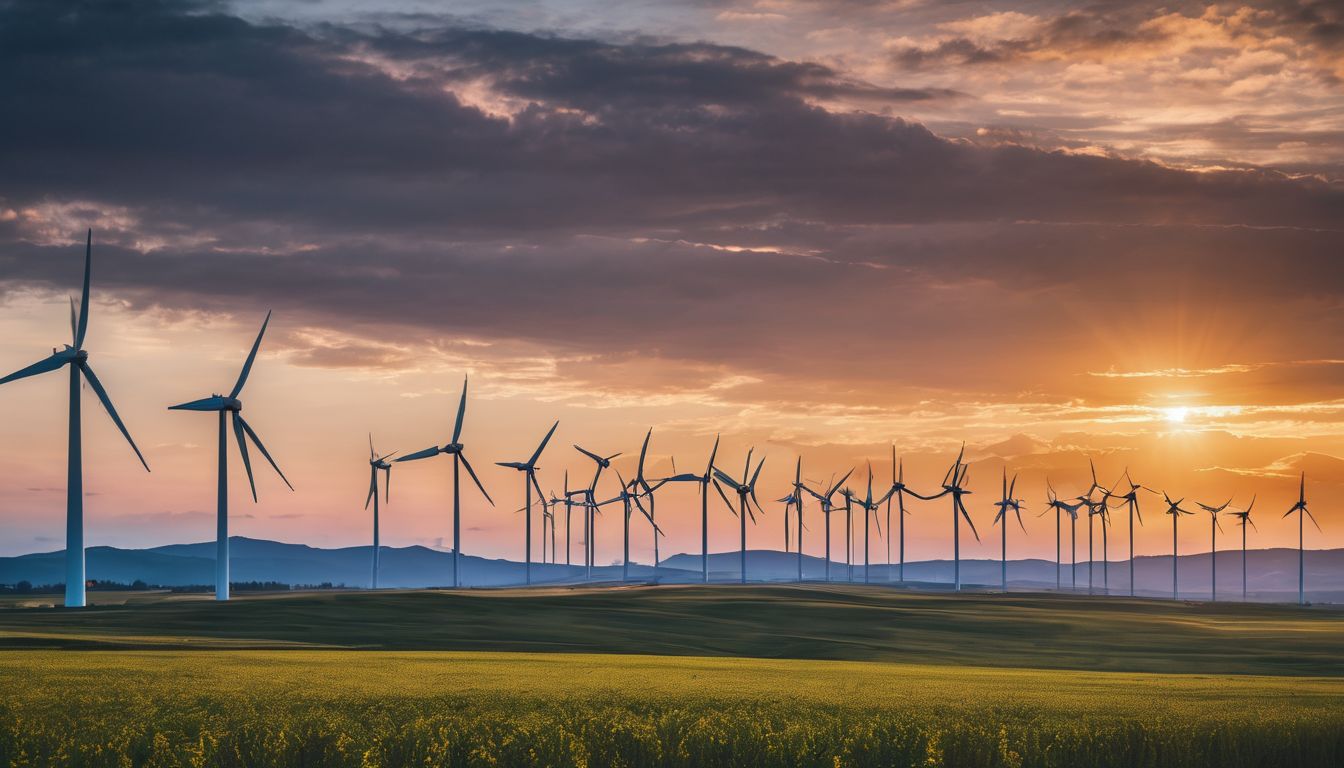Confronting the issue of diminishing water resources is a shared concern amongst many of us. Having navigated similar anxieties myself, it’s sobering to recognise that nearly two billion individuals reside in nations plagued by severe water scarcity.
Our forthcoming article will map out definitive steps for orchestrating an effective workshop on water conservation – ideal for those eager to enact genuine change. Immerse yourself in our guide and discover how you can spearhead the movement towards sustainability.
Key Takeaways
- Plan a successful water conservation workshop by setting clear objectives, identifying the target audience, and using available resources like expert speakers and educational materials.
- Promote the event through social media, community collaborations, and local endorsements to attract a diverse group of participants interested in sustainable practices.
- Cover practical topics in the workshop such as water use efficiency techniques for individuals, municipal strategies for conservation, and innovative approaches towards sustainable living.
- Encourage actionable changes by educating on simple daily steps like fixing leaks at home or adopting xeriscaping in gardens to reduce water usage.
- Facilitate further education on water conservation with resources like online courses, webinars, workshops and by joining organisations dedicated to promoting environmental sustainability.
Importance of Water Conservation
Water conservation is crucial for the environment and communities, especially in the face of current water scarcity issues. It helps to protect natural ecosystems, maintain biodiversity, and ensure access to clean water for all.
Benefits for the environment and communities
Conserving water plays a crucial role in maintaining the balance of our ecosystems. It helps preserve wetlands and wildlife habitats, ensuring that plants and animals thrive. By reducing water usage, we lower the energy needed for water treatment and distribution, which cuts down on harmful emissions.
Our efforts contribute to cleaner rivers and streams, meaning safer environments for aquatic life.
Communities benefit extensively from conservation initiatives as well. We support local agriculture by using efficient irrigation methods that prevent soil depletion, safeguarding food security for generations to come.
Implementing simple water stewardship strategies creates cost savings for households and municipalities alike, freeing up funds for other essential services. Sustainability workshops like ours empower individuals with the knowledge to make impactful changes—everyone has a part to play in fostering environmental sustainability through mindful resource conservation.
Current water scarcity issues
After realising the benefits of water conservation for the environment and communities, it is crucial to acknowledge the pressing current water scarcity issues. The increasing demand for freshwater coupled with climate change impacts has led to severe shortages in various regions, affecting both urban and rural areas.
This predicament calls for urgent attention and action to address sustainable water management practices that can help alleviate these challenges.
Rising population growth, inadequate infrastructure, pollution, and inefficient water use are primary factors contributing to water scarcity. Furthermore, changing weather patterns and prolonged droughts exacerbate the situation, posing serious threats to ecosystems and livelihoods.
Planning for a Successful Workshop
To ensure a successful workshop, it is essential to clearly identify the objectives and target audience, take stock of available resources, and effectively promote the workshop. By doing so, we can maximise participation and engagement in our water conservation efforts.
Identify objectives and target audience
Our main objectives for the water conservation workshop are to educate participants about the importance of water preservation and to equip them with practical strategies for conserving this precious resource.
The target audience includes environmentally conscious individuals, community leaders, and professionals interested in implementing water sustainability practices. By aligning the workshop content with our audience’s interests and needs, we aim to empower them to make a positive impact on their communities and the environment.
To attract a diverse group of attendees, we will tailor our messaging to resonate with those who are already passionate about environmental conservation while also appealing to individuals new to the topic.
Through interactive sessions and real-life examples, we will demonstrate how each participant can play an active role in promoting water efficiency within their homes, workplaces, and local communities.
Our approach aims not just to inform but also inspire action towards sustainable water use.
Inventory available resources
We need to assess the resources we have at our disposal for the workshop on water conservation. This includes materials such as presentation equipment, handouts, and venue availability.
We should also consider human resources, like expert speakers or facilitators who can bring valuable insight to the event. Additionally, we must evaluate our financial resources and seek potential sponsors or partnerships that align with our mission.
Furthermore, it’s essential to review any existing educational materials or tools that can support our workshop objectives. By taking stock of these various resources, we can ensure a well-organised and impactful event that resonates with our audience and contributes to the promotion of water conservation practices.
Promote the workshop
Spread the word about our upcoming water conservation workshop to make a real impact in your community. Share the event on social media, community notice boards, and local newsletters to reach as many environmentally conscious individuals as possible.
Encourage friends and family to attend, and ask local businesses to display posters or flyers promoting the workshop. Utilise online platforms such as Eventbrite or Meetup to reach a wider audience and attract like-minded individuals interested in making a difference.
Engage with local environmental organisations, schools, and community groups to raise awareness about the workshop. Partner with them to promote the event through their networks and encourage participation from diverse perspectives.
Workshop Topics and Activities
Discover practical water use efficiency techniques, municipal strategies for conservation and the steps individuals can take to conserve water.
Water use efficiency techniques
Implementing water use efficiency techniques is crucial for sustainable conservation efforts. Introducing simple adjustments, such as installing low-flow fixtures or using mulch in gardens, can significantly reduce water consumption.
Monitoring and repairing leaks promptly is also imperative to ensure efficient usage. Additionally, employing irrigation methods like drip systems and rainwater harvesting helps maximise water utilisation while minimising waste.
Furthermore, promoting the use of native plants and adopting xeriscaping principles aid in conserving water resources within communities. Educating oneself about effective water management practices and actively implementing them not only reduces individual ecological footprints but also contributes to collective environmental sustainability.
Municipal strategies for conservation
Municipalities play a crucial role in water conservation through implementing efficient water use policies and infrastructure. By enforcing water-saving measures such as promoting xeriscaping, fixing leaky pipes, and regulating outdoor irrigation, local governments can significantly reduce water wastage within their jurisdiction.
Additionally, municipalities can provide incentives for residents to invest in water-efficient appliances and fixtures while conducting public awareness campaigns on the importance of reducing water consumption.
Collaboration between different municipal departments is essential to incorporate sustainable practices into urban planning and development projects. Introducing stormwater management systems, green infrastructure, and wastewater reuse initiatives are also key strategies that local authorities can adopt to promote overall water sustainability within communities.
Practical steps for individuals to conserve water
Transitioning from municipal strategies for conservation to practical steps for individuals, let’s discuss some straightforward options that environmentally conscious individuals can implement daily.
Firstly, consider fixing any leaking taps or pipes in your home and ensuring that all water fixtures are working properly. Another simple step is to use a broom instead of hosing down driveways and sidewalks.
When gardening, opt for drought-resistant plants and use mulch to retain soil moisture. Additionally, you can install water-saving devices such as low-flow showerheads and faucet aerators in your home.
Moreover, reducing shower time by just a few minutes each day can make a significant impact on water usage over time. Regularly checking and maintaining sprinkler systems will also prevent unnecessary water wastage when watering lawns or gardens.
Conclusion and Call to Action
Let’s work together to implement water conservation practices in our communities and homes. Click here to read more about how you can make a difference.
Encouraging implementation of water conservation practices
To encourage implementation of water conservation practices, we can start by incorporating small changes in our daily routines. Simple actions such as fixing leaky faucets, using a broom instead of a hose to clean outdoor areas, and taking shorter showers can all contribute significantly to water conservation efforts.
Additionally, spreading awareness about the importance of water conservation within our communities and workplaces is crucial. By sharing tips for saving water and advocating for sustainable practices, we can inspire others to join us in making a positive impact on the environment.
Furthermore, exploring alternative methods such as rainwater harvesting or installing water-efficient fixtures at home or work can make a substantial difference. Engaging with local authorities and supporting municipal initiatives for promoting efficient water use is also essential in driving larger-scale change towards sustainability.
Together, let’s take proactive steps towards conserving this precious resource for future generations.
Resources for further education and action.
Explore further education and action through online courses, webinars, and workshops focusing on water conservation initiatives, soil preservation methods, and municipal guides to sustainable water management.
Engage in awareness programmes that offer practical tips for individuals to incorporate water conservation measures into their daily lives. Seek out interdepartmental collaboration opportunities to promote water sustainability workshops and participate in conservation education for a profound impact on the environment.
Access comprehensive resources with innovative solutions for implementing effective water conservation strategies at home or within communities. Discover actionable steps from experts in the field of environmental sustainability by joining organisations dedicated to promoting conservation efforts.
FAQs
1. What is the purpose of organising a workshop on water conservation?
The main goal is to increase awareness and provide professional development for soil conservation and share effective methods for water conservation.
2. Who should attend water conservation workshops?
Everyone interested in learning and sharing water conservation tips and solutions, especially those involved in related awareness programs, should attend.
3. What can I expect to learn from a water conservation workshop?
You will gain knowledge on various techniques to save water, understand the importance of soil preservation, and discover new ways to implement water-saving practices in your daily life.
4. How do these workshops contribute to solving water issues?
By educating individuals through engaging activities and discussions, these workshops spread crucial information that empowers communities to take action towards sustainable use of water resources.





